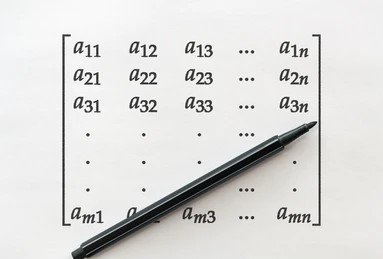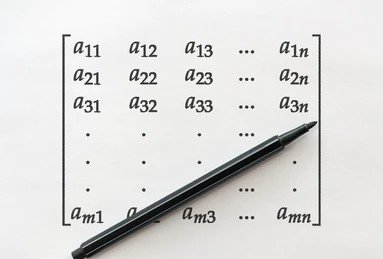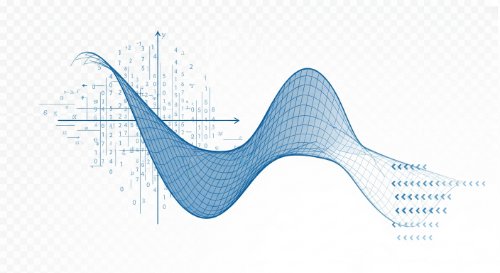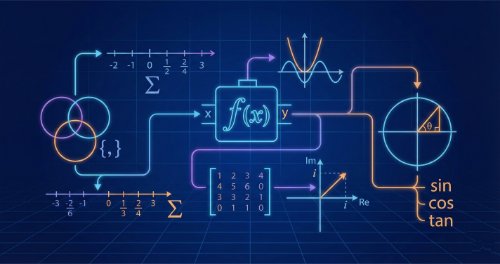Theorems (1) - Elementary Transformations | Matrices, Determinants, and Systems of Linear Equations - Linear Algebra (Undergraduate Advanced)
SPONSORED Get Personalized Tutoring NowStruggling with a tough concept or looking to advance your skills? Our expert tutors offer one-to-one guidance tailored to your unique needs.
Get instant support, clear explanations, and practical strategies to master even the most challenging subjects. With flexible scheduling and customized learning plans, success is just a session away.
Book your personalized tutoring today and start achieving your academic goals!
Get Personalized Tutoring NowStruggling with a tough concept or looking to advance your skills? Our expert tutors offer one-to-one guidance tailored to your unique needs.
Get instant support, clear explanations, and practical strategies to master even the most challenging subjects. With flexible scheduling and customized learning plans, success is just a session away.
Book your personalized tutoring today and start achieving your academic goals!
Struggling with a tough concept or looking to advance your skills? Our expert tutors offer one-to-one guidance tailored to your unique needs. Get instant support, clear explanations, and practical strategies to master even the most challenging subjects. With flexible scheduling and customized learning plans, success is just a session away. Book your personalized tutoring today and start achieving your academic goals!

Matrices, Determinants, and Systems of Linear Equations - Linear Algebra (Undergraduate Advanced)
Do you want to learn how to work with matrices and their properties, operations, and applications? Do you want to understand the concepts of determinants, eigenvalues, eigenvectors, diagonalization, quadratic and canonical forms? Do you want to master the skills of solving systems of linear equations, finding inverses, and computing matrix functions using different methods and tools?
If you answered yes to any of these questions, then this course is for you!
This course covers the fundamentals of matrix theory and its applications in mathematics and science. You will learn how to:
- Define and classify matrices and their special types, such as symmetric, orthogonal, diagonal, and identity matrices
- Perform matrix addition, subtraction, multiplication, and scalar multiplication using the algebraic properties of matrices
- Find the transpose, conjugate, and adjoint of a matrix and use them to simplify matrix operations and expressions
- Perform elementary row and column transformations on matrices and use them to find the row echelon form, reduced row echelon form, rank, and nullity of a matrix
- Find the minors, cofactors, and determinants of matrices and use them to calculate the area, volume, and orientation of geometrical figures
- Find the inverse of a matrix using the adjoint method or the row operations method and use it to solve systems of linear equations
- Find the eigenvalues and eigenvectors of a matrix using the characteristic polynomial and the Cayley-Hamilton theorem and use them to analyze the behavior and stability of dynamical systems
- Diagonalize a matrix using the eigenvalues and eigenvectors and use it to compute matrix functions, such as polynomials, exponentials, sines, and cosines of matrices
- Find the quadratic and canonical forms of an equation using the coefficient matrix and the transformation matrix and use them to classify and graph conics and quadrics
- Use computer software, such as MS-Excel, MATLAB, and Python, to perform matrix operations and computations efficiently and accurately
This course is suitable for anyone who wants to learn or review the basics of matrix theory and its applications. It is especially useful for students and professionals in algebra, calculus, differential equations, linear programming, optimization, cryptography, computer graphics, data science, machine learning, and other related fields.
By the end of this course, you will have a firm grasp of the theory and applications of matrices and determinants. You will also be able to apply the knowledge and skills you gain to solve real-world problems and challenges that involve matrices.
Once enrolled, you have access to dynamic video lessons, interactive quizzes, and live chat support for an immersive learning experience. You engage with clear video explanations, test your understanding with instant-feedback quizzes and interact with our expert instructor and peers in the chat room. Join a supportive learning community to exchange ideas, ask questions, and collaborate with peers as you master the material, by enrolling right away.
Matrices, Determinants, and Systems of Linear Equations - Linear Algebra (Undergraduate Advanced)
Do you want to learn how to work with matrices and their properties, operations, and applications? Do you want to understand the concepts of determinants, eigenvalues, eigenvectors, diagonalization, quadratic and canonical forms? Do you want to master the skills of solving systems of linear equations, finding inverses, and computing matrix functions using different methods and tools? If you answered yes to any of these questions, then this course is for you! This course covers the fundamentals of matrix theory and its applications in mathematics and science. You will learn how to: - Define and classify matrices and their special types, such as symmetric, orthogonal, diagonal, and identity matrices - Perform matrix addition, subtraction, multiplication, and scalar multiplication using the algebraic properties of matrices - Find the transpose, conjugate, and adjoint of a matrix and use them to simplify matrix operations and expressions - Perform elementary row and column transformations on matrices and use them to find the row echelon form, reduced row echelon form, rank, and nullity of a matrix - Find the minors, cofactors, and determinants of matrices and use them to calculate the area, volume, and orientation of geometrical figures - Find the inverse of a matrix using the adjoint method or the row operations method and use it to solve systems of linear equations - Find the eigenvalues and eigenvectors of a matrix using the characteristic polynomial and the Cayley-Hamilton theorem and use them to analyze the behavior and stability of dynamical systems - Diagonalize a matrix using the eigenvalues and eigenvectors and use it to compute matrix functions, such as polynomials, exponentials, sines, and cosines of matrices - Find the quadratic and canonical forms of an equation using the coefficient matrix and the transformation matrix and use them to classify and graph conics and quadrics - Use computer software, such as MS-Excel, MATLAB, and Python, to perform matrix operations and computations efficiently and accurately This course is suitable for anyone who wants to learn or review the basics of matrix theory and its applications. It is especially useful for students and professionals in algebra, calculus, differential equations, linear programming, optimization, cryptography, computer graphics, data science, machine learning, and other related fields. By the end of this course, you will have a firm grasp of the theory and applications of matrices and determinants. You will also be able to apply the knowledge and skills you gain to solve real-world problems and challenges that involve matrices. Once enrolled, you have access to dynamic video lessons, interactive quizzes, and live chat support for an immersive learning experience. You engage with clear video explanations, test your understanding with instant-feedback quizzes and interact with our expert instructor and peers in the chat room. Join a supportive learning community to exchange ideas, ask questions, and collaborate with peers as you master the material, by enrolling right away.

CHE 305: Engineering Analysis I
Advanced engineering mathematics covering solid analytical geometry, integrals, scalar and vector fields, matrices and determinants and complex variables.
Curated for third-year students of engineering at Obafemi Awolowo University, Ile-Ife, Nigeria. Students and professionals with similar learning goal will also find this learning track useful.
CHE 305: Engineering Analysis I
Advanced engineering mathematics covering solid analytical geometry, integrals, scalar and vector fields, matrices and determinants and complex variables. Curated for third-year students of engineering at Obafemi Awolowo University, Ile-Ife, Nigeria. Students and professionals with similar learning goal will also find this learning track useful.

MTH 202: Mathematical Methods II
Comprehensive treatise of advanced mathematics covering vector calculus, complex numbers, linear vector spaces, linear maps, matrices, eigenvalues and eigenvectors.
Curated for second-year students of engineering and physical sciences at Obafemi Awolowo University, Ile-Ife, Nigeria. Students and professionals with similar learning goal will also find this learning track useful.
MTH 202: Mathematical Methods II
Comprehensive treatise of advanced mathematics covering vector calculus, complex numbers, linear vector spaces, linear maps, matrices, eigenvalues and eigenvectors. Curated for second-year students of engineering and physical sciences at Obafemi Awolowo University, Ile-Ife, Nigeria. Students and professionals with similar learning goal will also find this learning track useful.

GET 209: Engineering Mathematics I
Master the mathematical language of engineering. This programme delivers the complete analytical toolkit required for a successful engineering career, covering single-variable calculus, multivariable calculus, linear algebra, and vector analysis. It provides the essential foundation for all subsequent engineering courses.
This programme is for second-year undergraduate students across all engineering disciplines. It delivers the official NUC CCMAS curriculum for Engineering Mathematics, providing the core training required for advanced modules in mechanics, thermodynamics, and circuit theory.
Model and analyse complex physical systems using calculus, linear algebra, and vector analysis. You will be equipped to solve problems in dynamics, statics, and field theory, providing the quantitative proficiency required for advanced engineering study and professional practice.
GET 209: Engineering Mathematics I
Master the mathematical language of engineering. This programme delivers the complete analytical toolkit required for a successful engineering career, covering single-variable calculus, multivariable calculus, linear algebra, and vector analysis. It provides the essential foundation for all subsequent engineering courses. This programme is for second-year undergraduate students across all engineering disciplines. It delivers the official NUC CCMAS curriculum for Engineering Mathematics, providing the core training required for advanced modules in mechanics, thermodynamics, and circuit theory. Model and analyse complex physical systems using calculus, linear algebra, and vector analysis. You will be equipped to solve problems in dynamics, statics, and field theory, providing the quantitative proficiency required for advanced engineering study and professional practice.

MTH 204: Linear Algebra I
Master the algebraic structures that underpin modern science and computation. This academic track delivers the complete NUC CCMAS MTH 204 curriculum, moving rigorously from abstract vector spaces to practical matrix theory. It provides the essential mathematical toolkit required for advanced problem-solving in high-demand STEM fields.
This programme is targeted at undergraduates in mathematics, engineering, and computer science requiring a firm grounding in linear structures. It also serves professionals in data science, cryptography, and machine learning needing a rigorous theoretical refresher on foundational concepts.
You will achieve competence in manipulating abstract vector spaces, determining basis and dimension, and analyzing linear transformations through their kernels and images. You will master matrix arithmetic, compute determinants, solve systems of linear equations using advanced methods, and apply techniques of eigenvalues and diagonalization. Completion establishes the critical foundation demanded for advanced studies in multivariate calculus, differential equations, and complex computational algorithms.
MTH 204: Linear Algebra I
Master the algebraic structures that underpin modern science and computation. This academic track delivers the complete NUC CCMAS MTH 204 curriculum, moving rigorously from abstract vector spaces to practical matrix theory. It provides the essential mathematical toolkit required for advanced problem-solving in high-demand STEM fields. This programme is targeted at undergraduates in mathematics, engineering, and computer science requiring a firm grounding in linear structures. It also serves professionals in data science, cryptography, and machine learning needing a rigorous theoretical refresher on foundational concepts. You will achieve competence in manipulating abstract vector spaces, determining basis and dimension, and analyzing linear transformations through their kernels and images. You will master matrix arithmetic, compute determinants, solve systems of linear equations using advanced methods, and apply techniques of eigenvalues and diagonalization. Completion establishes the critical foundation demanded for advanced studies in multivariate calculus, differential equations, and complex computational algorithms.

MTH 205: Linear Algebra II
Advanced linear algebra is the mathematical backbone of modern data science, engineering, and physics. This learning track delivers the rigorous MTH 205 curriculum based on NUC CCMAS standards, focusing on sophisticated matrix analysis and practical computational methods critical for solving complex technical problems.
This programme is targeted at undergraduates in mathematics, engineering, and computer science requiring a deep command of advanced matrix theory. It is equally essential for data scientists and engineers seeking a rigorous theoretical foundation for machine learning algorithms, cryptography, and complex system modelling.
You will master matrix manipulations to solve linear systems and compute determinants and inverses efficiently using various methods including software like Python and MATLAB. You will gain competence in determining eigenvalues and eigenvectors, applying diagonalization to analyze the stability of dynamical systems, and working with quadratic and canonical forms. Completion establishes the critical mathematical expertise required for advanced studies in multivariate statistics, differential equations, and algorithmic development.
MTH 205: Linear Algebra II
Advanced linear algebra is the mathematical backbone of modern data science, engineering, and physics. This learning track delivers the rigorous MTH 205 curriculum based on NUC CCMAS standards, focusing on sophisticated matrix analysis and practical computational methods critical for solving complex technical problems. This programme is targeted at undergraduates in mathematics, engineering, and computer science requiring a deep command of advanced matrix theory. It is equally essential for data scientists and engineers seeking a rigorous theoretical foundation for machine learning algorithms, cryptography, and complex system modelling. You will master matrix manipulations to solve linear systems and compute determinants and inverses efficiently using various methods including software like Python and MATLAB. You will gain competence in determining eigenvalues and eigenvectors, applying diagonalization to analyze the stability of dynamical systems, and working with quadratic and canonical forms. Completion establishes the critical mathematical expertise required for advanced studies in multivariate statistics, differential equations, and algorithmic development.

MTH 101: Elementary Mathematics I - Algebra and Trigonometry
Master the foundational mathematical structures essential for success in quantitative undergraduate degrees and professional technical roles. This comprehensive learning track delivers a rigorous treatment of algebra and trigonometry, moving rapidly from fundamental set theory and real number operations to advanced topics including matrix algebra, complex numbers, and analytical trigonometry. You will establish the critical problem-solving framework required for advanced study in calculus, engineering mechanics, and data science.
This programme is primarily designed for first-year university students in STEM disciplines requiring strong analytical bases, particularly engineering, physics, computer science, and economics. It also serves as an intensive, high-level refresher for professionals returning to academia or shifting into data-driven roles demanding precise numerical literacy and logical structuring. Prior competence in standard secondary school mathematics is assumed; focus is placed strictly on mastery and application of core definitions.
Upon completion, you will possess the skills to construct rigorous logical arguments using set theory and mathematical induction, model complex relationships with functions and matrices, and analyze periodic systems using advanced trigonometry. You will demonstrate competence in solving diverse equation types, from quadratics to linear systems, and manipulating complex numbers in engineering applications. This track prepares you directly for the mathematical demands of second-year university studies and technical professional certification exams.
MTH 101: Elementary Mathematics I - Algebra and Trigonometry
Master the foundational mathematical structures essential for success in quantitative undergraduate degrees and professional technical roles. This comprehensive learning track delivers a rigorous treatment of algebra and trigonometry, moving rapidly from fundamental set theory and real number operations to advanced topics including matrix algebra, complex numbers, and analytical trigonometry. You will establish the critical problem-solving framework required for advanced study in calculus, engineering mechanics, and data science. This programme is primarily designed for first-year university students in STEM disciplines requiring strong analytical bases, particularly engineering, physics, computer science, and economics. It also serves as an intensive, high-level refresher for professionals returning to academia or shifting into data-driven roles demanding precise numerical literacy and logical structuring. Prior competence in standard secondary school mathematics is assumed; focus is placed strictly on mastery and application of core definitions. Upon completion, you will possess the skills to construct rigorous logical arguments using set theory and mathematical induction, model complex relationships with functions and matrices, and analyze periodic systems using advanced trigonometry. You will demonstrate competence in solving diverse equation types, from quadratics to linear systems, and manipulating complex numbers in engineering applications. This track prepares you directly for the mathematical demands of second-year university studies and technical professional certification exams.